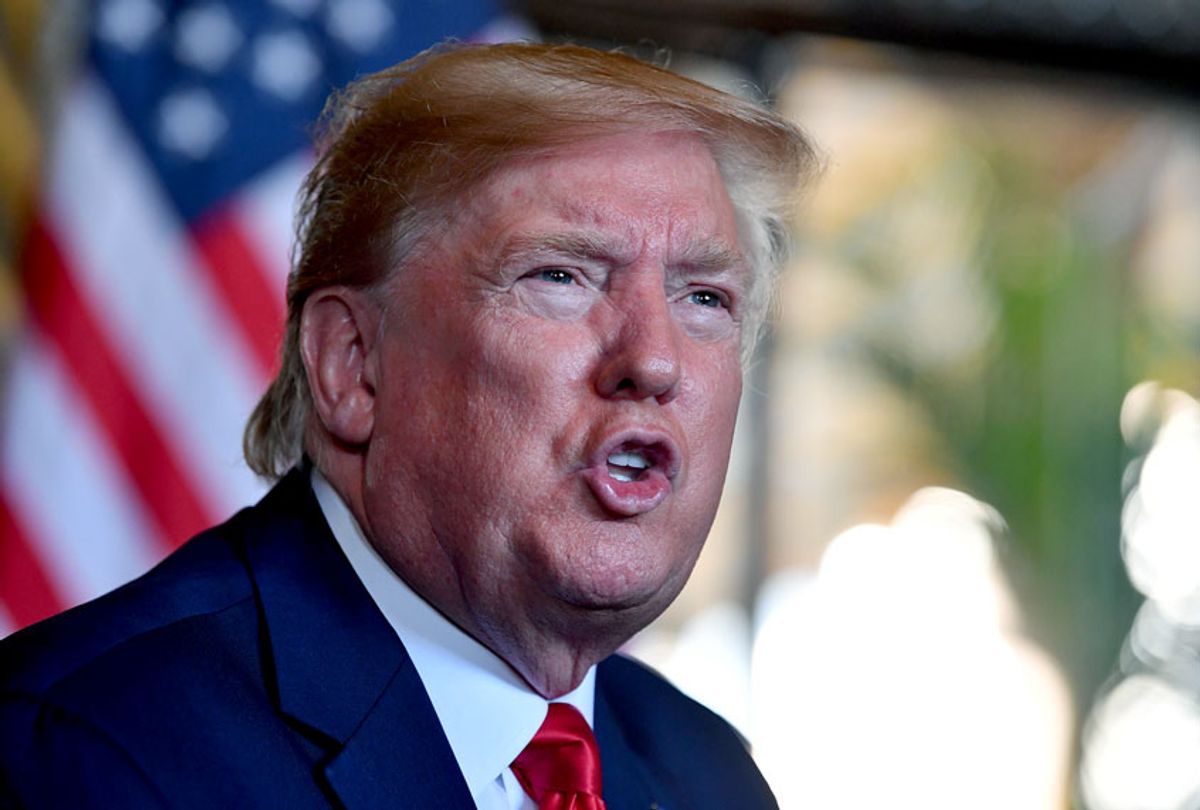President Donald Trump wants to make it easier for American companies to bribe foreign officials even as he argues that the Ukraine pressure campaign that led to his impeachment was an effort to root out corruption.
Trump's legal team argued in a filing for the Senate impeachment trial that his pressure on Ukraine was borne out of an effort to root out foreign corruption, even though he did not mention "corruption" once during his two phone calls with Ukrainian President Volodymyr Zelensky. But while Trump's lawyers argue to senators that he is an ardent corruption fighter, his administration is plotting to make it easier to bribe foreigners.
Top White House economic adviser Larry Kudlow told CNBC last week that the administration is "looking at" reforming the 1977 Foreign Corrupt Practices Act that bars American companies from paying bribes to win overseas contracts because "we have heard some complaints from our companies."
"I don't want to say anything definitive policy-wise, but we are looking at it," Kudlow said.
The question to Kudlow was raised after Washington Post reporters Phillip Rucker and Carol Leonnig, who won a Pulitzer Prize for their coverage of Trump and Russia, reported in the upcoming book "A Very Stable Genius," that Trump complained that he needed to "get rid of" the bribery law to then-Secretary of State Rex Tillerson in 2017.
"It's just so unfair that American companies aren't allowed to pay bribes to get business overseas," Trump said, according to a book excerpt published by The Post. "We're going to change that."
The authors said that Trump expressed frustration "ostensibly because [the law] restricted his industry buddies or his own company's executives from paying off foreign governments in faraway lands."
Tillerson explained to Trump that it would be impossible to "get rid" of the law without Congress voting to repeal it, but Trump ordered senior adviser Stephen Miller to draft an executive order to repeal the law, according to the book.
The president's disdain for the anti-bribery law is unsurprising. Trump, whose company worked with shady business partners accused of corruption in Panama and Azerbaijan, repeatedly railed against the law before he ran for president.
"Now, every other country goes into these places, and they do what they have to do. It's a horrible law and it should be changed. I mean, we're like the policeman for the world. It's ridiculous," Trump told CNBC in 2012, claiming that the "world is laughing at us."
Though the law remains on the books, The New York Law Journal reported shortly after Trump took office that enforcement of the Foreign Corrupt Practices Act (FCPA) declined after the president's inauguration.
"In general terms, there's been a dramatic drop-off from the average over the previous 10 years, to what we're seeing in the Trump administration," attorney Steven Witzel, who wrote the article, told NPR. "If there's a continued sharp decline in FCPA enforcement proceedings, that has the potential to undermine the credibility of the United States' commitment to combating international corruption."
The effort to gut the FCPA is par for the course for an administration that, while arguing it opposes corruption, has opened the door to corruption.
One of Trump's first acts in office was to kill an Obama-era rule created after the 2007-08 financial crisis requiring US companies to disclose how much they pay foreign governments to prevent corruption.
And despite claiming concern over corruption in Ukraine, the Trump administration repeatedly sought to cut millions of dollars from a program aimed at combating corruption in Ukraine and other nations.
"It's ironic to hear President Trump talk about his work fighting against corruption, because he essentially shut down these very clear-cut initiatives that have been endorsed the world over, that are not radical by any stretch of the imagination," Oxfam America's Isabel Munilla told NPR.
The effort to roll back laws and programs seeking to combat foreign corruption directly undercuts Trump's defense as he combats calls for him to be removed from office.
"Trump actually approves of corruption," opined New York Magazine's Jonathan Chait. "He wishes there was more of it. It's astonishing that, even as Trump's impeachment defense hinges upon his supposed hatred for foreign corruption, his administration isn't even hiding its desire to weaken the country's most powerful law against overseas corruption."

Shares